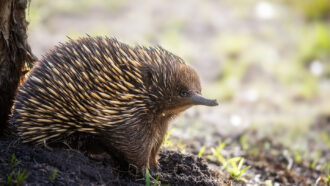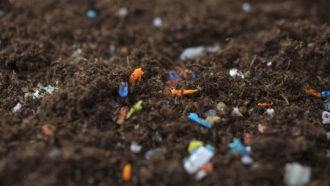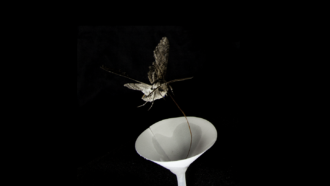Earth
-
 Climate
ClimateMicrobes in the Arctic may be releasing more climate-warming gases
Mini greenhouses in the wild show how the tiny organisms lurking underground in a ‘sleepy biome’ could play a big role in climate change.
-
 Earth
EarthAnalyze This: Where are U.S. earthquakes most likely?
A model used data on historical quakes and measurements from active faults to forecast risks of damaging earthquakes in the next 100 years.
By Carolyn Wilke and Nikk Ogasa -
 Animals
AnimalsCorals may have been the first life forms to glow in the dark
Ancestors of modern octocorals may have lit up the deep sea as far back as 540 million years ago.
By Jake Buehler -
 Climate
ClimateClimate change is changing how scientists measure time
Polar ice sheets are melting faster. This is slowing Earth’s spin, which changes how we sync our clocks to tell time.
-
 Chemistry
ChemistryScientists Say: Methane
Used to cook food and heat homes, this potent greenhouse gas accounts for 30 percent of the warming of our climate.
-
 Plants
PlantsGene editing may help rice better withstand climate change
Three genes may limit the ability of rice to handle dry or salty conditions. A Regeneron ISEF finalist shows that CRISPR could target and change them.
-
 Health & Medicine
Health & MedicineNew tool maps where U.S. heat can pose threats to your health
The daily updated HeatRisk maps use color coding to show where the health threat from heat is highest. The website also offers tips for staying safe.
By Nikk Ogasa -
 Oceans
OceansThe seas’ record-breaking hot streak may bring unwelcome changes
Off-the-charts warming could fire up more hurricanes, intensify coral bleaching and accelerate the melting of Antarctic sea ice.
By Nikk Ogasa -
 Animals
AnimalsSurprise! These animals can help fight climate change
Some animals help fight climate change by boosting the amount of carbon dioxide that plants, algae and bacteria absorb from the atmosphere.
-
 Environment
EnvironmentTo limit pollution, new recipe makes plastic a treat for microbes
Microplastics made from fossil fuels take centuries to disappear. But the plant- and algae-based plastic can break down in weeks to months.
By Skyler Ware -
 Earth
EarthEarthquake sensor: Taylor Swift fans ‘Shake It Off’
Scientists determined dancing fans were behind the seismic waves recorded during Swift’s August concerts.
By Skyler Ware -
 Chemistry
ChemistryAir pollution can make it harder for pollinators to find flowers
Pollutants that build up in night air can break down the scents that attract pollinating hawkmoths to primrose blooms, disrupting their pollination.